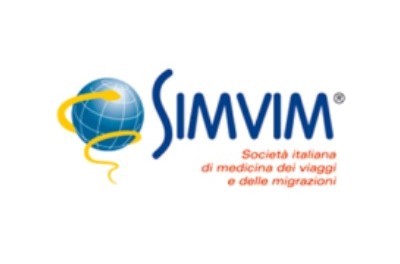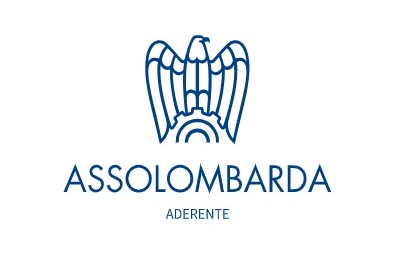Business Travel Medicine: health and safety on the go
Category: News - Author: Alessandro Perone
The Covid-19 pandemic has dramatically presented to everyone's eyes the fundamental importance of health prevention and control activities for travellers, especially for those who travel for work. With a progressive return to a new form of normality, in which classic travel is accompanied by new forms of travel such as bleisure and workation, it is essential to be responsive to the needs and sensitivities that have transformed the world of traveling these past years.
At an international level, a new standard was published in September 2021: ISO 31030 on Travel Risk Management. This new ISO outlines the operational perimeter, presenting the guidelines for companies to fulfill their Duty of Care (or duty of care), imposing on the company the moral responsibility or the legal obligation to protect the traveling employee from dangers and threats at all stages of the trip.
Thanks to the experience gained in Travel Medicine, Ambimed applies the themes of prevention and safety while traveling within the scope of the obligations established by Occupational Medicine, guaranteeing the health of employees before, during and after the business trip. Thanks to Business Travel Medicine, the company's target destinations are analysed, the potential dangers of business travelers in terms of Health and Safety are assessed and the operating procedures are defined to mitigate the risks identified.
Upstream: risk assessment and training
One of the most important steps is the one that takes place before the trip, with the drafting of detailed procedures for managing travel health and updating the DVR (Risk Assessment Document) to include the risks associated with the trip, focusing on traveler's health of its travel policy.
Well-structured and uniform procedures allow you to minimize the negative effects of potential unexpected events, facilitating the sharing of information that can be vital throughout the company. Clear communication helps travelers feel safer and more motivated to travel.
Mapping the health status of traveling staff and vaccination coverage, with preventive vaccination plans, allows you to reduce travel preparation times without giving up health security. The company must provide adequate medical checks for all travellers; the medical examination and checks are defined in the Foreign Health Protocol and are useful for verifying the physical and mental health of employees and establishing suitability for travel.
In conclusion, adequate training of the travelers must never be lacking. The program must contain an overview of the health risks present in the geographical area of destination, an analysis of the main vectors of transmission of endemic pathologies and possibly, where foreseen, a focus on the extreme environmental conditions of the place of destination.
As indicated in the ISO 31030 guidelines on Travel Risk Management, the best practices to be observed during work missions will be illustrated, including the most suitable hygiene measures and work clothes.
Before departure: consultation with a travel medicine specialist
One of the main sources of risk is insufficient information, which leads to underestimating the risks that can be encountered. However, not all destinations are the same and not all travelers are the same.
Before his departure, it is essential to inform the traveler about the specific risks of the trip with a pre-travel Medical Induction (pre-trip medical advice) which considers: the itinerary, the destination, the program during the stay, without forgetting variables such as the seasonality of some diseases. Health emergencies can cause a radical change in safety requirements on a short notice. Even climatic factors are to be taken into consideration, and not just for temperatures: how does precipitation affect air pollution, for example?
In the same way, it is important to consider the traveler's medical history: drugs in use, recent surgical operations, or even pregnancies in progress are just some of the factors that can influence (even radically) the tools and precautions to be used to guarantee maximum safety during travel. An in-depth pre-trip consultation is the best way to properly address specific travel challenges.
Travel: from assets to continuous assistance
Despite the precautions taken, it is not possible to control all the variables. For this reason it is important to keep the situation under control, assisting the employee even remotely with the use of punctual and careful information on health emergencies or relevant safety situations that may develop during the trip in order to promptly respond to changing circumstances.
The company must define all assets that are important to the employee, including:
Have the employee travel with an adequate means of transport that allows the correct recovery of rest before starting work, in order to minimize the effects of stress related to the transfer;
Arrange the stay in accommodation facilities with adequate levels of hygiene and safety;
Assign geolocation tools that are always operational;
Prepare and communicate emergency numbers on the Health and Safety side with Assistance Centers active 24/7;
Plan a return-home plan in the event of a health or safety emergency.
The business traveler must never feel abandoned on his own.
Upon return: verification of the measures taken
Problems don't always manifest themselves immediately: it is possible that disturbances arise only after the trip. For this reason, it is advisable to pay attention to the return trip home of the traveler, verifying the state of health with specific medical check-ups on return which, in the light of the risks identified before departure, are aimed at the specific conditions of the journey.
The Travel Security manager, with the help of the Company Doctor and the RSPP, must be available to listen to the employee on his return to analyze whether the measures taken have been sufficient but above all effective. A periodic verification of the procedures and a constant search for improvement are the basis for creating a company that is attentive to the well-being and safety of its business travellers.
Conclusions: let's go back to traveling safely
As the pandemic dragged on, airline industry experts thought that the numbers would never return to normal but there is something about seeing each other in person that a video conference cannot replicate, an intrinsic value in the immediacy of face-to-face meetings, that for lack of better terms we can call it: humanity of the encounter.
Technological progress and the birth of new digital tools offer us today unimaginable possibilities and ways of interacting, and because of the pandemic it is safe to say that they have officially been cleared in terms of their use on a large scale. Travel agencies specializing in business travel in 2022 recorded a number of travelers almost in line with the volumes of 2019 and the projections for 2023 are strongly positive.
We are returning to travel, but we must do it safely. With a proposal of services for Business Travel Medicine modeled on the needs of each individual reality, Ambimed supports companies with traveling staff in defining all the procedures necessary to ensure the health and safety of employees on mission abroad.





